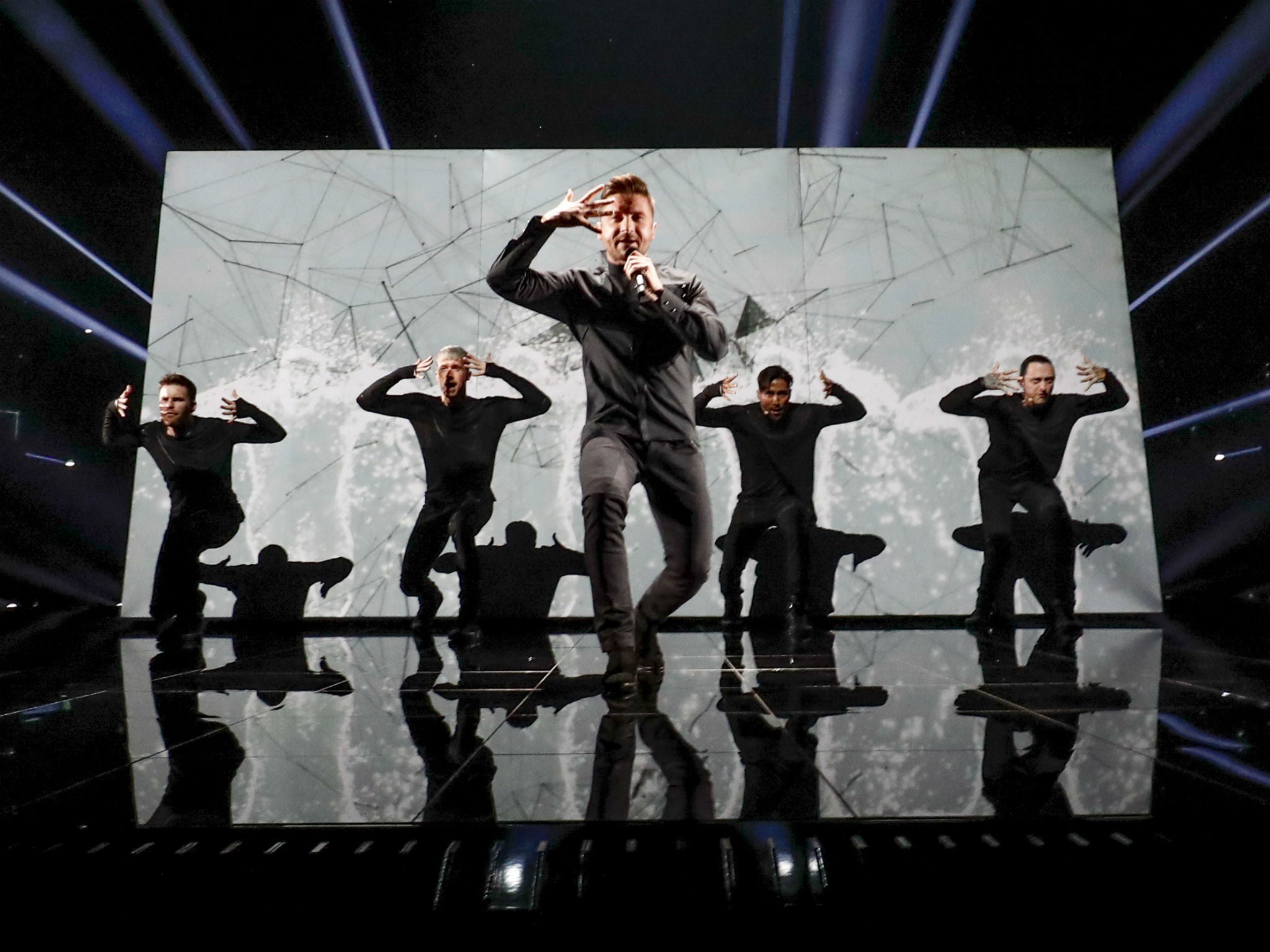Eurovision 2016 winner: Could Russia win the song contest despite its anti-gay law?
Russia has had a tough job winning over Europe in recent years given its poor gay rights and the Ukraine crisis

Sergey Lazarov is the runaway favourite to win this year’s Eurovision with his catchy, upbeat song about thunder and lightning “getting exciting”. The one potential flaw in his bid for glory? The country he is representing.
Russia has a long history of poor gay rights with its ban on the “promotion of homosexuality”, with LGBT rainbow flags always waved fiercely in protest during their act’s performance at the famously gay-friendly song contest. Russian president Vladimir Putin derisively branded Eurovision “a Europe-wide gay parade” after bearded lady Conchita Wurst won for Austria in 2014 with her diva-style anthem “Rise Like a Phoenix”, and there is the possibility of multiple countries boycotting the 2017 event should it be hosted in Moscow. Ukraine has already suggested that it will bow out rather than send an act to Russia, albeit a result of deeper political tensions.
Booing Russia is not uncommon at Eurovision either, despite the organisers annual warning not to politicise the event. The loudest protest took place in 2014, after the annexation of Crimea, when the 17-year-old Tolmachevy Sisters walked on stage in Copenhagen. Russia were booed again last year but the crowd’s negativity towards Dima Bilan did not stop him from coming second.
Despite Eurovision’s wariness towards Russia, the country has always been determined to win. It hosted in 2009 after Dima Bilan won with “Believe” in Belgrade (many gay fans refused to attend) and ever since, Putin has put national importance on doing well in the final with the aim of promoting Russia and proving to the rest of Europe what a show it can put on. This year, Russia hired two composers who have written Eurovision hits before,a vocal coach for Lazarov and top-rate backing singers. During a BBC interview, Lazorev admitted that for Russia, Eurovision is “very serious” and “like the Olympic Games in music, really, really”.
No pressure on the big night then.
Join our commenting forum
Join thought-provoking conversations, follow other Independent readers and see their replies
Comments